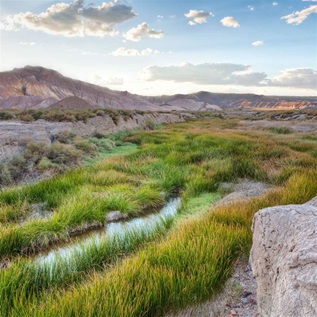Mining Law Threatens Grand Canyon And Other Natural Treasures
A modern day land rush is sweeping the West, with mining interests and speculators staking thousands of claims that are encroaching on American treasures including the Grand Canyon, Joshua Tree, Arches, and Yosemite National Parks. The United States' outdated mining law written in 1872 leaves these lands vulnerable to severe impacts.
Supported by the Pew Campaign for Responsible Mining, an Environmental Working Group analysis of government records shows that in 12 Western states, the total number of active mining claims has increased from 207,540 in January 2003 to 376,493 in July 2007—a rise of more than 80 percent. Between September 2006 and May 2007 alone, companies and individuals staked more than 50,000 claims.
Many of these claims are for uranium, sparked by global demand for nuclear power. Government data from just four states (Colorado, New Mexico, Utah, and Wyoming) reveal an ongoing surge in uranium claims from an estimated 4,300 staked in fiscal year 2004 to more than 32,000 staked in fiscal year 2006.
Mining interests have also staked tens of thousands of claims for gold, copper and other metals, reflecting a worldwide demand for minerals. Thousands of the claims can be found at the doorstep of some of the West's most treasured places. For example, the explosion of mining activity threatens a crisis for Grand Canyon National Park, where companies and individuals have staked 815 claims within five miles of the park's boundary.
View the related June 2008 statement on mining and America's Western lands from Jane Danowitz, director of the Pew Campaign for Responsible Mining.






